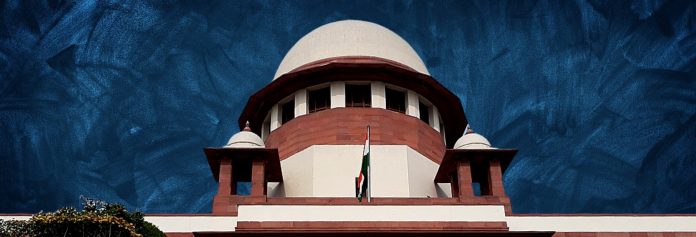- As you are aware, the incumbent Chief Justice of India UU Lalit has had a short stint at the helm of judicial affairs in the country. Around 44 days to be precise. But he must be accorded due credit for initiating much-needed measures to speed up the process of hearing litigations by organizing the cases in a more structured manner. Of course, his previous predecessors too undertook a few measures in the right direction to provide relief to the citizens who look up to the Apex Court as the final recourse. Note that the judiciary at various levels is encountering a huge backlog of cases running into a few crores. Most worryingly, a great percentage of undertrials languishing in jails for want of hearing is a concern that deserves immediate addressal.

PC: Dr Balram K Gupta
- Undoubtedly, the task is humongous but the higher judiciary, especially the Supreme Court, had to take cognizance of the matter to envisage implementable measures to address the anomaly. While CJU UU Lalit went about introducing reforms in the system of listing cases in the SC, another anomaly has come to the fore now. What is it? Ready to be heard matters are kept pending for no discernible reason. This came to the CJI’s attention while looking into a special leave petition (SLP) filed by a lawyer in 2021 opposing the initiation of contempt proceedings against him by the Karnataka high court. SLPs are a unique Indian constitutional provision allowing litigants to directly approach SC against any order or decree of a court below it.
- Note that SLPs make SC a powerful court. Conversely, they are misused by litigants and lawyers for out-of-turn hearings or to frustrate legal proceedings against them. The latter, because when SC is seized of a matter, no court below it can proceed. Hence, the perverse incentive to keep matters pending in SC by litigants fighting a losing case. Now, the CJI has sought a list of all such long-pending ready to be heard matters. Yes, there are around 38,000 admission matters ready for hearing, nearly 12,000 incomplete admission matters with various defects, and 19,000 regular hearing matters pending in SC. Such huge numbers make 30-odd SC judges especially dependent on court staff, who become key players in the system of justice administration.

PC: Law and Legislation
- There have been incidents where court staff has been caught amending judicial orders to suit wealthy litigants. CJI Lalit’s attempt to get any fresh petition listed for hearing within 10 days can reduce their discretionary power. Welcomingly, the CJI-designate Justice Chandrachud has shown enough intention to take forward the reforms in the listing system. The constitution bench headed by him attempting to ensure arguments by senior advocates don’t overlap and waste judicial time is most welcome. Needless to mention, if SC can put its own house in order, it will send a great salutary signal on accountability and adherence to due process. This way, the citizens’ trust in the august institution will be only strengthened further.






